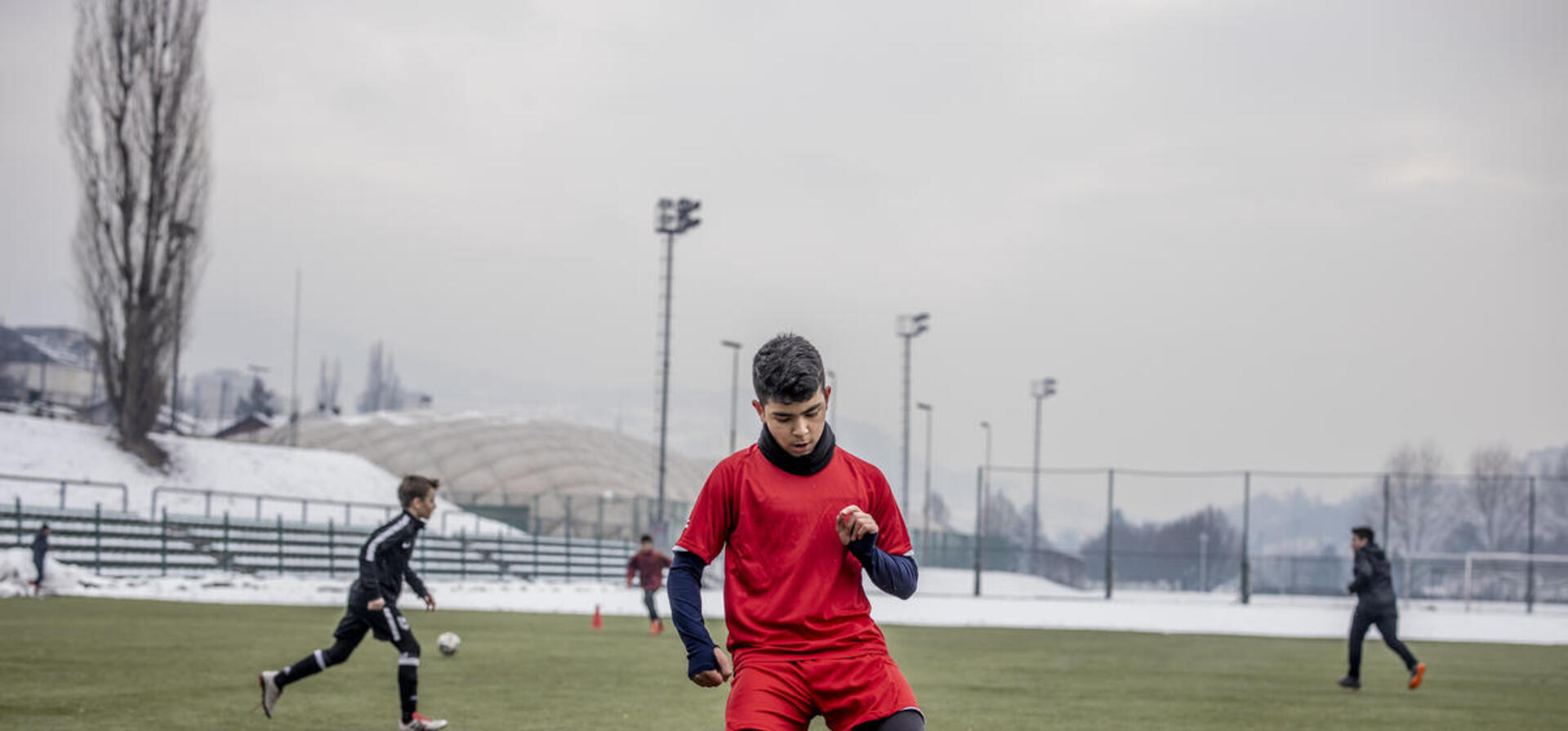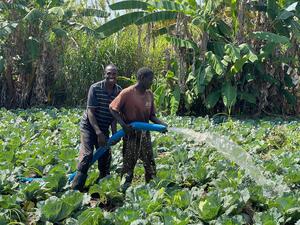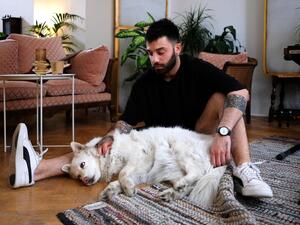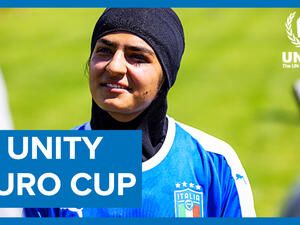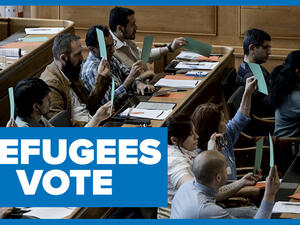The chef and the footballer: Father and son find hope in Bosnia
Refugees and migrants line up outside a reception centre near the Bosnian capital of Sarajevo, hungrily anticipating their next meal. Judging from the delicious smells wafting from the kitchen, lunch is going to be worth waiting for.
The chef is Majid, from Iran, who specializes in preparing dishes that will appeal to his fellow asylum-seekers. Today he is making a lamb curry.
“Cooking is my art,” he says. “I will never serve others what I would not eat myself.”
The number of migrants and asylum-seekers traveling through Bosnia from the Middle East in a bid to reach the European Union has increased sharply, even though the border with Croatia remains blocked.
“Cooking is my art."
Majid, 39, could be one of them, since he arrived in Sarajevo 10 months ago from Iran, en route to Europe. But instead he has applied for asylum in Bosnia and Herzegovina, a country recovering from its own war in the 1990s.
“I’m going nowhere,” he says. “I’m staying right here. I love Bosnia!”
UNHCR, the UN Refugee Agency, says the country needs donor support to cope with increased arrivals and process applications. Dorijan Klasnic, a UNHCR public information officer, said 1,600 people had registered asylum claims since January 2018.
“It is clear there are people who would see the country as a place of refuge; a place they could call home,” he said.
Majid is a single father to Muhammed, 14, who is doing well at school and playing in the youth team of football club FK Sarajevo.
"For some people football is just a game, but for me it is life," says Muhammed, who dreams of turning professional one day.
Majid left Iran to secure a safe future for Muhammed. They were bound for the European Union, but when they arrived in Sarajevo, Majid met a Bosnian man whose hospitality made him reconsider and he filed asylum applications for them both.
“I felt the (man’s) warmth and kindness. It is the human connection that matters.” This friendship shaped Majid’s thinking, and if their applications are accepted, he and his son intend to put down roots in Sarajevo.
Sarajevo is a beautiful city, now largely restored after a siege in which nearly 14,000 people were killed between 1992 and 1996. But Majid has no time to visit its old town, with its winding streets, bazaars, mosques and Catholic and Orthodox churches.
At weekends, Majid earns a little for himself by cooking for locals and tourists at a popular spot by a waterfall. Five days a week he volunteers to feed fellow migrants and refugees.
“I believe that what you give comes back to you,” he says, and his generosity and enthusiasm have not gone unnoticed.
The international school, normally fee-paying, is allowing Muhammed to study free of charge.
One recent evening, Majid was cooking supper while Muhammed sat in the living room watching a football match online.
Muhammed started to play seriously aged eight and now he trains every day, either at the club or at home.
His idol is global star Cristiano Ronaldo, but whether he gets the chance to develop his own career in sport depends, in part, on the asylum application. Without refugee status, he can train and play in friendly matches but cannot travel or participate in the national league, which starts in September.
“It is a pity he has no documents,” says his coach, Tarik Cerik. “He risks losing the winning mentality you only get through playing competitively. He is still young but next year the more serious league starts. He will need to get his status sorted by the new season.”

